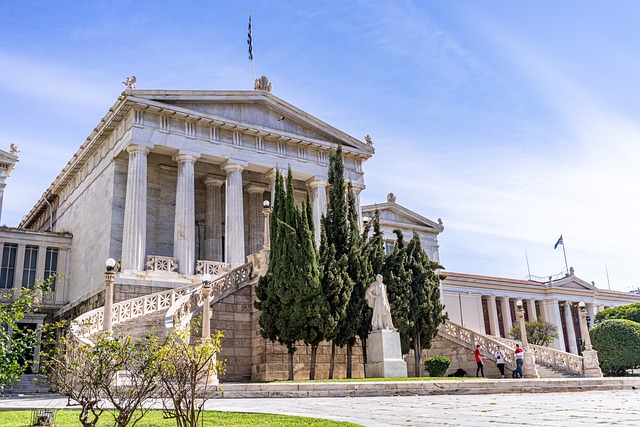Eugene's history is intertwined with its strategic location and the 1873 establishment of the University of Oregon, which catalyzed its transformation from a logging town to a vibrant cultural hub. Balancing preservation and progress, the city's urban development, fueled by transportation networks, has created a unique blend of historical landmarks and modern attractions. The university continues to drive Eugene's intellectual and artistic growth, making it a model for livability that seamlessly merges past and present.
“Discover the fascinating journey of Eugene, a vibrant city with a rich history. From its humble beginnings as a settling in the 19th century to becoming a thriving community, Eugene’s founding story is intertwined with its unique character. The University of Oregon has played a pivotal role in shaping education and research, contributing to the city’s intellectual vibrancy. Explore Eugene’s urban development, transportation evolution, and cultural milestones that have transformed it into a dynamic metropolis, marked by historical landmarks that tell tales of its past.”
- Eugene Founding History: From Settling to Flourishing Community
- University of Oregon: Shaping Education and Research in Eugene
- Eugene Urban Development, Transportation, and Cultural Evolution Over Time
Eugene Founding History: From Settling to Flourishing Community

Eugene’s journey began as a small settlement in the 1800s, but it has since evolved into a thriving urban center with a rich cultural heritage. The city’s founding was closely tied to its strategic location along important transportation routes, which attracted pioneers and settlers. As a result of their efforts, Eugene experienced rapid growth, setting the stage for its future as a vibrant community.
The establishment of the University of Oregon in 1873 played a pivotal role in shaping Eugene’s identity. The university became a cultural hub, fostering academic excellence and contributing significantly to the city’s intellectual and artistic evolution. Moreover, Eugene’s urban development flourished with the arrival of railroads, which facilitated trade and connected it to broader economic opportunities. These historical landmarks, combined with the University’s influence, laid the groundwork for Eugene’s reputation as a dynamic and diverse cultural center in the Pacific Northwest.
University of Oregon: Shaping Education and Research in Eugene

The University of Oregon, founded in 1873, has played a pivotal role in shaping both the educational landscape and urban development of Eugene, a city rich in historical landmarks and cultural evolution. As one of the state’s flagship institutions, the university has significantly contributed to the region’s intellectual and economic growth over the years. Its presence has been instrumental in the area’s transformation from a humble beginnings as a logging town during its founding history to becoming a vibrant, culturally diverse community today.
The University’s impact extends beyond academia, influencing Eugene’s transportation history as well. The institution has been at the forefront of fostering innovation and research that have contributed to advancements in sustainable mobility solutions. This synergy between education, research, and urban development has made Eugene a model city for livability and progress, with its historical landmarks serving as testaments to its rich past while embracing modern cultural trends and technological innovations.
Eugene Urban Development, Transportation, and Cultural Evolution Over Time

Eugene’s journey from a humble founding to its current status as a thriving city is deeply intertwined with the forces of urban development, transportation, and cultural evolution. The city’s history begins with Native American tribes who understood the area’s rich resources and strategic location along key trade routes. With the arrival of European settlers, Eugene took on new dimensions. The 1850s saw the establishment of a permanent settlement, followed by the founding of the University of Oregon in 1873, which played a pivotal role in shaping the city’s intellectual and cultural landscape.
Over time, Eugene’s urban development has been characterized by a blend of progress and preservation. The expansion of transportation networks, including railroads and highways, facilitated growth while also connecting Eugene to broader economic opportunities. Today, the city boasts a vibrant downtown core with historical landmarks that tell tales from its past, alongside modern amenities and cultural institutions. The University of Oregon continues to be an intellectual hub, contributing significantly to the city’s cultural evolution and attracting diverse communities.
